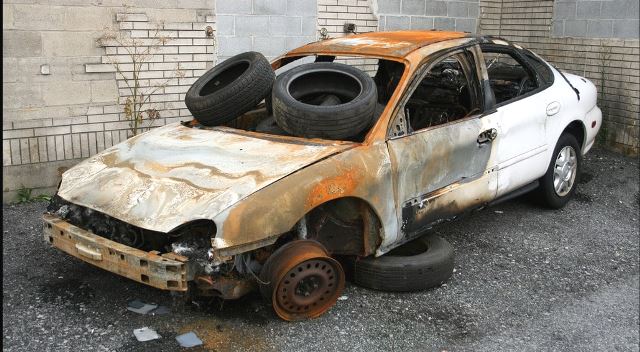The Financial and Ecological Advantages of Reusing Junk Autos
Reusing scrap cars presents many financial and ecological advantages that expand well beyond waste reduction. By reclaiming approximately 90% of vehicle components, this practice substantially decreases landfill worry while preserving essential natural deposits. In addition, it lowers power use and greenhouse gas exhausts connected to raw material extraction and production. The procedure also produces job opportunity across different markets, from dismantling to logistics, and gives customers with cost-effective car parts. These advantages underscore the complex value of recycling junk autos, yet there are better facets to consider when assessing its complete influence.
Minimizing Garbage Dump Waste
Reducing land fill waste through the recycling of scrap cars plays a pivotal duty in ecological conservation. When automobiles reach completion of their life process, efficient reusing processes can dramatically reduce the volume of waste that ends up in garbage dumps. Scrap automobiles, if not correctly reused, add to the growing trouble of landfill overcapacity, aggravating environmental destruction and possibly polluting dirt and groundwater with harmful compounds such as oil, gas, and heavy metals.

Furthermore, the recycling procedure reduces the negative results of automotive waste on biodiversity. Land fills are infamous for disrupting local ecological communities, and decreasing the influx of junk cars helps preserve natural environments. Inevitably, reusing junk cars is a tactical method that cultivates sustainable waste administration, lining up with wider environmental objectives.
Conserving Natural Resources
Along with mitigating landfill overcapacity, recycling junk vehicles plays a substantial function in saving natural sources. The auto sector is greatly dependent on various metals, plastics, and various other materials that need substantial mining and processing. By recycling scrap automobiles, we considerably minimize the need for raw products, consequently curbing the ecological deterioration linked with mining activities. Recycling steel from old automobiles reduces the need for iron ore extraction, which in turn reduces power consumption and greenhouse gas discharges.
In addition, the procedure of recycling auto elements such as copper, lead, and light weight aluminum is far less energy-intensive than generating these products from virgin resources. This energy savings converts directly into minimized fossil fuel intake and reduced carbon impacts (sell car to junkyard). Additionally, by reclaiming and repurposing products, we prolong the lifecycle of non-renewable sources, guaranteeing they stay offered for future usage
In addition, recycling automotive liquids like oil, transmission, and antifreeze fluid protects against dangerous compounds from infecting dirt and water sources. Through systematic reusing efforts, these liquids can be cleansed and recycled, promoting a circular economic climate and additional reducing the stress on natural sources. Hence, recycling junk cars and trucks provides a diverse method to preserving our world's vital all-natural assets.
Producing Task Opportunities
The recycling of junk automobiles not only profits the setting but likewise stimulates financial growth by producing work chances. This burgeoning industry supplies a large selection of employment leads, ranging from the preliminary collection and transport of old automobiles to the intricate procedures of taking apart, sorting, and repurposing the numerous components.

The More Help spreading of reusing plants further intensifies the work market, requiring duties such as designers, equipment operators, and quality assurance professionals to make certain and take care of the advanced equipment compliance with environmental policies. Also administrative positions, such as sales, advertising, and customer service, see a surge as the industry broadens.
Decreasing Manufacturing Costs
By integrating recycled products from scrap cars, producers can significantly reduce manufacturing expenses. The power needed to refine recycled products is substantially much less than that needed to create brand-new products from scrape.
Moreover, the reusing process assists simplify the supply chain by supplying a consistent increase of products that are readily offered and usually cheaper than newly extracted sources. These price performances are particularly critical in a very affordable sector like auto production, where margins can be razor-thin. Furthermore, the recycling of scrap automobiles helps minimize the volatile prices of resources, enabling producers to better projection and regulate their manufacturing spending plans.
Offering Inexpensive Auto Parts
When scrap automobiles are reused, the accessibility of budget friendly automobile components substantially boosts, benefiting both customers and service center. Recycled auto parts are typically offered at a fraction of the expense of repairs, offering an economical choice for car owners and technicians. This affordability can be important for individuals who may not have the financial ways to purchase new elements, allowing them to maintain their lorries in risk-free and operational condition.
Service centers additionally gain from this boosted accessibility of budget friendly parts. By sourcing recycled parts, these services can reduce their operational costs, which can be handed down to customers via reduced service fee. This, consequently, can result in higher consumer satisfaction and commitment, as clients value the cost savings without endangering on high quality.
Furthermore, the quality of recycled components has enhanced considerably throughout the years, many thanks to developments in reusing procedures and top quality control steps. Several recycled parts undergo extensive screening to ensure they satisfy market criteria, providing dependability equivalent to repairs - sell Recommended Site car to junkyard. By providing a high-grade and financially sensible option, the recycling of scrap vehicles plays an essential role in sustaining both the auto repair industry and the broader consumer market
Final Thought
Reusing junk cars provides considerable financial and environmental advantages by dramatically decreasing landfill waste and preserving natural deposits. This technique decreases making costs by reclaiming up to 90% of car elements, thus lowering power intake and greenhouse gas discharges. Furthermore, it creates employment possibility throughout numerous industries and supplies inexpensive auto components, strengthening the auto repair service industry. On the whole, the recycling of scrap autos sustains both financial growth and sustainability purposes.
Reusing scrap vehicles provides numerous economic and environmental benefits that prolong well past waste decrease. Scrap vehicles, if not he said effectively recycled, add to the expanding problem of landfill overcapacity, exacerbating environmental degradation and possibly infecting dirt and groundwater with unsafe materials such as oil, gas, and heavy metals.
By reusing scrap vehicles, we substantially minimize the need for raw products, thereby suppressing the ecological destruction associated with mining tasks.When junk automobiles are reused, the accessibility of affordable auto components significantly raises, profiting both consumers and repair work shops.Reusing junk vehicles presents significant financial and environmental advantages by dramatically lowering land fill waste and saving all-natural sources.